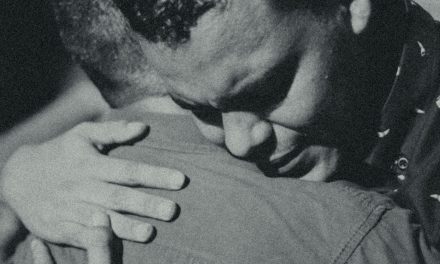First Reading – Proverbs 31:10-13, 19-20, 30-31
Responsorial Psalm – 128:1-2, 3, 4-5
Second Reading – 1 Thessalonians 5:1-6
Gospel Reading – Matthew 25:14-30
At this point in the year we are, of course, nearing the end of the liturgical calendar and that means our readings are turning us toward the eschaton, or “End Times.” This is all in preparation for next Sunday’s Solemnity of Our Lord Jesus Christ, King of the Universe. Correspondingly, the common theme throughout our readings at the end of Ordinary Time is preparation.
Consider the second reading from the First Letter to the Thessalonians. The classic dualisms of Pauline eschatology are on display in the contrast between those who are in darkness and the “children of the light.” Paul stresses that those who have faith in Christ “are not of the night or of darkness” but walk always in the light of Christ. They will not be surprised by Jesus’ return but are to be actively looking forward to that day and are preparing themselves for it.
Paul’s summons, “let us not sleep as the rest do, but let us stay alert and sober,” is therefore a call to act and live in such a way that Jesus’ return—and the judgment it will entail—do not catch any of us off guard.
The Gospel reading adds some detail to what it might mean to “stay alert and sober” in this way.
Jesus tells a story of a man who provides various amounts of “talents” to his servants, “each according to his ability,” and then ultimately returns after a lengthy absence to see what his servants have done with these talents. Two of these servants are rewarded for their efforts to take their master’s talents and yield a growing reward (they both double the money given to them). The third servant, however, fearing his master’s wrath, did not wish to risk losing the money and so returns only what was given and is punished for it.
Given the play on words around “talents” in English, this story is often read metaphorically to stress the importance of using one’s God-given gifts to be of service to others. In this account, the last servant is punished for being selfish and hiding the contributions God had given to make the world a better place. (Imagine a person with a beautiful voice who refuses to sing, depriving the world of a little bit of beauty.)
As much as I am partial to this reading, I also struggle with it because I know that the term does not have the double meaning in the original language. It seems to depend a bit too much on what we bring to the text rather than what the text brings to us.
When I try to think about what the text might mean in a more literal reading that focuses on the economic sense of “talents” as a form of currency, I struggle even more. There is a fascinating interpretation on this level by Barbara Reid that essentially argues the parable is not telling us to maximize our investments because the “man going on a journey” is not in fact God. Instead, the parable is an exhortation to do exactly what the last servant does and to refuse to exploit others for the “master’s” gain. In this reading, the final servant’s punishment is a reminder that those who are preparing for the eschaton will need to be willing to accept earthly punishment for living as children of the light in a world of darkness.
I’m not fully convinced by this reading either, as it seems to run counter to the narrative asides about how fidelity in small matters leads to greater responsibilities. Plus, the way the Parable of the Talents flows from the Parable of the Ten Virgins (included in last Sunday’s readings) makes it very much seem like the text is telling us something about the kingdom of heaven.
Sitting with these tensions, and reflecting on all the readings for Mass this Sunday, I’m inclined to split the difference. That is, I’m looking at the original financial meaning of “talents” and asking: What might this third servant have failed to do that resulted in punishment?
I see an answer to this question in the first reading. This reading reflects a common analogy in Proverbs, which uses the selection of a spouse (specifically a wife) as a metaphor for wisdom. The wise choice is the worthy wife, and so the characteristics that justify her worthiness are particularly revealing: she works hard (using her talents?) and “reaches out her hand to the poor and extends her arms to the needy.”
I’m struck by the way that the worthy wife’s actions align with some of the most prominent themes of Catholic social teaching. There is a clear affirmation of the dignity of work, a stress on the preferential option for the poor, and a vision of solidarity and the common good implicit in the text.
This connection got me thinking about the way Catholic social thought considers investment. There is a recognition that savings and investments can be very powerful tools for the promotion of the common good, (see Compendium of the Social Doctrine of the Church nos. 358–360, and 368–369), but also a firm reminder that the human person has priority at all times over the value of capital and the desire for a return on investment (see Compendium, no. 277). As the Compendium puts it in one succinct phrase: “Wealth exists to be shared.”
When I turn these commitments toward the Gospel, I see a way of reading the text as an illustration of a Christian’s responsibility to use wealth for the benefit of others. The master’s accounting is, in this reading, a demand that the servants show how they have used the master’s talents to make a difference in the lives of others too. After all, it is not as though the master suddenly tells the first two servants that the money is now theirs; it remains the master’s talents we are talking about, not the servants’. Paralleling the insights from Proverbs, the flaw of the final servant is thus in the failure to use the master’s resources for the good of others, especially the poor.
Is there perhaps a literal reading of this Gospel, then, that is inviting us to see our money as a valuable resource that we are asked to steward for God? How might we share that resource in a way that extends its benefits and serves the common good? Can we take this responsibility more seriously if we know there will, one day, be an accounting for the impact we have had?




